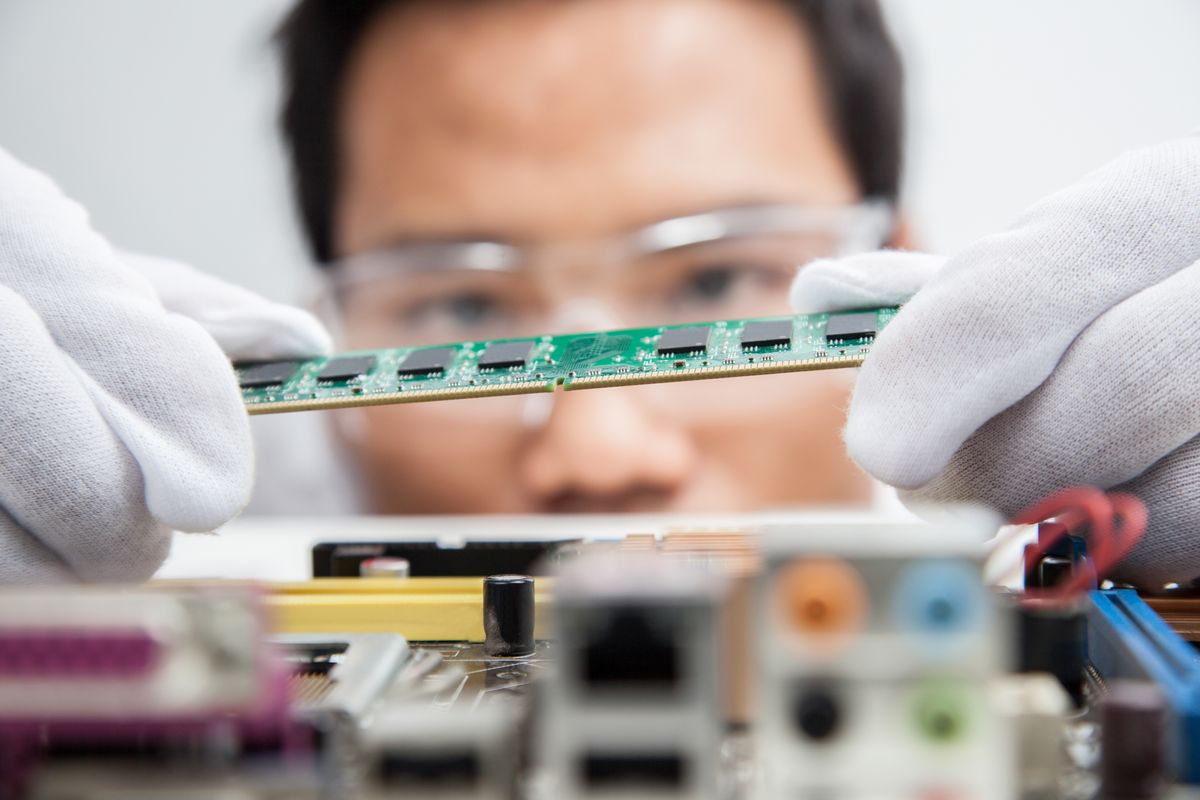The entire world has looked with bated breath to Taiwan, where top U.S. politician Nancy Pelosi became the first high-ranking American official in 25 years to set foot on the island nation Tuesday. China is interpreting Pelosi’s Taiwan visit as a threat to its sovereign integrity as it claims the island nation to be its territory under the ‘One China’ policy and it has warned the U.S. of dire consequences if America does not “sit idly by”.
Beijing, meanwhile, has begun military manoeuvres in the waters around Taiwan, according to state television. They are said to run until Sunday.
In the short term, Pelosi’s visit may seem to be more like psychological warfare, but her trip to Taiwan also reminds the world of the significant role Taiwan symbolises to the global technology sector. In fact, most of the advanced chips in the world are made in Taiwan. Significantly enough, semiconductor stocks plunged on Tuesday anticipating Pelosi’s visit to Taiwan.
Precisely speaking, shares of the world’s biggest as well as the most valuable semiconductor manufacturer, Taiwan Semiconductor Manufacturing Co. (TSMC), valued at $440 bn, plunged 2.4% on Tuesday. Similarly, the shares of two other Taiwanese chip manufacturers – United Microelectronics and MediaTek, slipped by 3% and 1.6%, respectively. Even the stocks of the U.S. chipmaker Intel dropped 1.5% on Tuesday.
Pelosi meets chip manufacturers
During her lightning trip to Taiwan, Pelosi spoke with the Chairman of TSMC on issues related to the American CHIPS Act passed in the last week of July. The new Act offers $52 bn in support for chip manufacturers investing in the U.S. It aims to rebuild America’s chipmaking capabilities and imposes restrictions on investment in China for companies receiving U.S. subsidies.
The U.S. considers TSMC vital to the country’s chip security interests as it supplies to various prominent U.S. chip developers, such as Apple, Google, Qualcomm and Nvidia. Pelosi also met several important industry officials, including TSMC founder Morris Chang, on Wednesday, at a lunch hosted by Taiwanese President Tsai Ing-Wen.
Later in the day, addressing a news conference, Pelosi called the passage of the CHIPS and Science Act “a great opportunity for U.S.-Taiwan economic cooperation.” “We just passed the Act, which opens the door for us to have better economic exchanges. … The entrepreneur spirit, the brain power and the intellectual resources in Taiwan – and the success of the tech industry in this country has been a model. And we want to increase our bilateral relationship,” Pelosi said.
Disruption of chip supply chain
Taiwan plays a vital role in the global chip supply chain and chip manufacturers in this country are major suppliers of advanced chips. All top companies globally, including Apple, Google, Intel and Tesla, rely on Taiwan for procuring smartphone and computer processors, as well as artificial intelligent A.I. chips for autonomous driving.
The dominance of Taiwan’s chip dominance is growing stronger and currently Taiwanese chipmakers are all set to expand their global market share to 66% this year. In other words, any move by China against Taiwan in reprisal of Pelosi’s visit and the subsequent fallout internationally would badly affect the chip technology supply chain globally. TSMC chairman Mark Liu said in a recent interview with CNN that his company’s advanced manufacturing operations are based on real-time global links with the remaining world. According to Liu, any move to forcibly takeover his company or any military action would make TSMC factories inoperable, creating economic turmoil. In such a scenario, most of the advanced chip technology components in the world would disappear, he warned.
Even experts agree with Liu. Senior advisor and trustee chair of the Chinese Center for Strategic and International Studies (CSIS) Scott Kennedy tweeted in July that any action by China in Taiwan would have an adverse impact on the operations of TSMC as the company operates in partnership with ASML, a Dutch firm, to manufacture a variety of advanced microchip. Similarly, Chief Asia Economist at Capital Economics, Mark Williams wrote on Monday, “Without ASML support, it would be impossible for TSMC to enhance its capacity to manufacture advanced chips and next-generation chips.”
TSMC shifting operations
Meanwhile, Taiwan Semiconductor Manufacturing Co. has already started shifting its operations outside Taiwan anticipating an international fallout. Aside from a $12 bn plant in Arizona, TSMC is building an $8.6 bn factory in Japan. In addition, the company has pledged $100 bn over the next three years to bolster its chip manufacturing capacity and solve the chip supply-chain issues globally owing to the COVID-19 pandemic. Incidentally, TSMC also has chip fabrication units in China.


 Australia
Australia China
China India
India Indonesia
Indonesia Japan
Japan Malaysia
Malaysia Philippines
Philippines Singapore
Singapore South Korea
South Korea Taiwan
Taiwan Thailand
Thailand Vietnam
Vietnam







